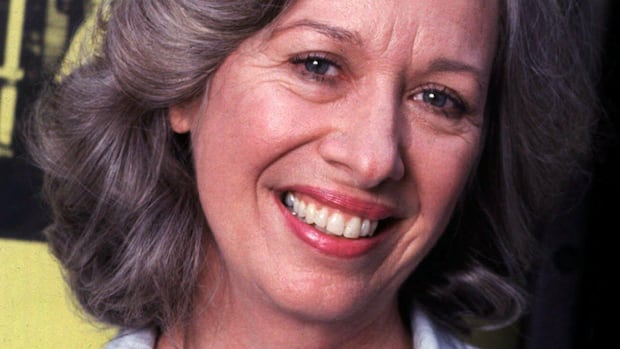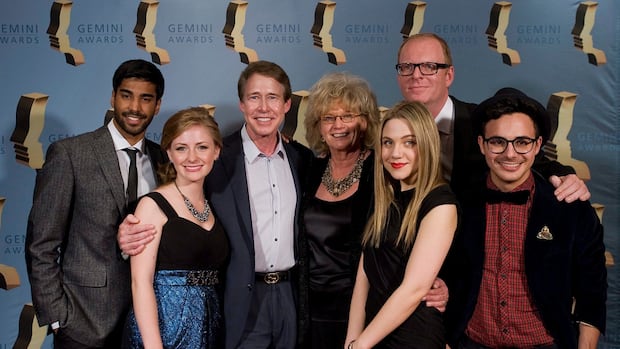Brian Wilson, whose virtuoso vocal and musical arrangements led the Beach Boys to commercial and critical success, making them one of America’s most influential bands, before personal demons waylaid his life and career for several years, has died.
The death of Wilson, who would have turned 83 next week, was announced by his family on his social media platforms, though the post did not specify exactly when he died or a cause. In recent months, the family said that Wilson had a “major neurocognitive disorder” and was taking medication for dementia.
“We are heartbroken to announce that our beloved father Brian Wilson has passed away,” the statement read. “We are at a loss for words right now. Please respect our privacy at this time as our family is grieving. We realize that we are sharing our grief with the world. Love & Mercy.”
Wilson — along with younger brothers Dennis and Carl, cousin Mike Love and friend Al Jardine — formed the iconic group in Southern California in mid-1961. Their songs of teenage love and youthful pursuits on beaches and in cars resonated with a youthful Boomer audience around the world, crystallizing an image of a golden California just as it became the largest U.S. state.
“They made me love America so much more because they existed,” Elton John said while inducting the Beach Boys into the second-ever Rock & Roll Hall of Fame class in 1986.
After scoring Top 10 hits with Surfin’ U.S.A. and Surfer Girl, the Beach Boys topped the charts in 1964 with I Get Around, scoring subsequent No. 1 hits later in the decade with Help Me, Rhonda and Good Vibrations. Pet Sounds, from 1966, a fixture near the top of lists of rock’s greatest albums, included the lasting classics God Only Knows and Wouldn’t It Be Nice.
“I’ve often played Pet Sounds and cried,” Paul McCartney said in an interview included in the liner notes of 1997’s The Pet Sounds Sessions box set reissue.
Surf culture and complex harmonies
The band’s intricate harmony vocals and orchestral flourishes — “teenage symphonies to God,” Wilson famously described them — influenced many artists through subsequent decades, including R.E.M., the High Llamas, and She & Him.
But like few other bands, the Beach Boys’ impact transcended music.
The late historian Kevin Starr, the state librarian who wrote 10 volumes on California’s evolution from the 19th to 21st centuries, described the Beach Boys as “one of the most important mythic brandings of Southern California since the creation of the orange crate label: a branding that would put … youth-oriented culture of surfing, beach life, cruising, parties, school and romance at the forefront of the California identity.”
Behind the clean-cut image, darkness and strife often lurked. All of the Wilson brothers struggled with drug use at various times, with Dennis Wilson unwittingly making the acquaintance of members of the Manson Family just over a year before their murderous rampage. The Beach Boys once adapted a song written by Charles Manson, who aspired to a career in music.
In his new memoir, “I Am Brian Wilson,” the former Beach Boys leader opens up on mental illness and the dangers of psychedelic drug use.
Above all, Brian Wilson’s struggles with his mental and physical health dominated their offstage narrative. Wilson retreated from touring after a late-1964 breakdown on an airplane, and four years later, became overwhelmed during recording sessions for Smile, his ambitious followup to Pet Sounds.
“I was able to get a hold of these drugs and they messed my mind up,” he told the BBC in a 1976 interview.
Wilson retreated from public life, and even the studio in his own house, for long stretches, at one point ballooning up to 300 pounds. For two separate stints between 1975 and 1991, the later-disgraced psychologist Eugene Landy helped Wilson get back to physical health, but at the cost of exerting Svengali-like control of his client.
Wilson’s travails have been compelling enough to spawn several books, a half-dozen documentaries, two miniseries and the 2014 motion picture Love & Mercy, in which Paul Dano and John Cusack portrayed Wilson at different stages of his life.
The 1994 Canadian film Whale Music, based on the Paul Quarrington novel of the same name, featured a wounded and reclusive Wilson-like rock star, while the Barenaked Ladies song Brian Wilson evoked the artist’s lost years.
‘Music is my saviour’
Wilson’s troubles led to an unconventional life for his daughters, Carnie and Wendy, who would later achieve pop success in Wilson Phillips. It also severely strained his first marriage, with Wilson and his wife, Marilyn, divorcing in 1979.
“I knew from like five years old he wasn’t normal and he wasn’t a normal father,” said Carnie Wilson in the 1995 documentary Brian Wilson: I Just Wasn’t Made for These Times.
In later life, Wilson would be diagnosed with schizoaffective disorder, a mental illness that in his case was marked by auditory hallucinations.
“Music is my saviour,” he told the CBC’s Peter Mansbridge in a 2004 interview.

Despite his challenges, Wilson was the last surviving brother. Dennis, the hard-living middle brother, drowned in 1983 while intoxicated at the age of 39, with youngest brother Carl succumbing to lung cancer at 51 in 1998.
By then, Wilson had met his second wife, Melinda Ledbetter, with the couple adopting five children. Ledbetter was said to be instrumental in the remarkable return of Wilson, given his history, to concert stages. He toured regularly beginning in the late 1990s and well into the 21st century.
She died unexpectedly in early 2024. A conservatorship was sought by his management team, who said he had a neurocognitive disorder and was unable to manage his affairs.
Early years
Brian Wilson was born on June 20, 1942, and raised in Hawthorne in metropolitan Los Angeles. Wilson’s parents, Murry and Audree — from Kansas and Minnesota, respectively — were among the wave of migrants from elsewhere in the U.S. who helped push California’s population from 1.5 million in 1900 to 33 million by century’s end.
Both parents were musically inclined and there was a piano in the home, but Wilson wasn’t formally trained, even failing one high school music class assignment.
George speaks with musician Brian Wilson about songwriting, his interpretation of Gershwin and what it’s like to be on tour again.
Most of the members of the group were just out of high school when they formed a musical group, influenced by Chuck Berry rhythms and doo-wop singers. It was Dennis Wilson — the only one who could ride a wave — who encouraged the fledgling quintet to tap into the burgeoning surfing subculture for material.
The group initially named themselves the Pendletones, after a clothing brand favoured in the surf community, but a local record distributor changed it to the Beach Boys as they released songs on a local independent label.
The Beach Boys soon signed with Capitol Records and Wilson blossomed as a musical arranger. Using the best studio musicians Los Angeles had to offer, Wilson’s productions grew more expansive, even as he dealt with a lifelong condition of limited hearing in his right ear.
“He would put the strangest things together, like electric guitar, banjo and harpsichord all playing the same line, so they just create this really strange sound,” said fan Tom Petty in I Just Wasn’t Made For These Times.
Amid the torrent of music and the accolades, there was occasionally friction. Murry Wilson — a sometimes abusive, domineering figure as his sons grew up, they each later reported — helped manage the group for a time in their early years, before being eased out of that role.
The Beach Boys became a more balanced group after Wilson’s health struggles, with the other members stepping up their contributions. But by the late 1960s, the Beach Boys struggled to fill concert venues as music sounds and preferences grew harder and more psychedelic. Capitol dropped the band, though they were picked up by Warner Records.
Wilson still chipped in with occasional songs — he once told CBC News that 1971’s Til I Die was one of his five best — and a public relations campaign heralded his presence on 1976’s 15 Big Ones, the band’s biggest-selling album in a decade.
Wilson’s fragile state would be tested after his brother Dennis drowned.
“It’s hard to lose a brother and someone who had such a vital, energetic thing about him, and I just don’t want to talk anymore about it,” an emotional Wilson said at a news conference days later.
Wilson would release his first solo album in 1988, but had become estranged from the band to such an extent that he didn’t feature on their first No. 1 song in two decades, Kokomo.
Legal battles with Landy and Mike Love, the latter over long-ago songwriting credits, were finally resolved in the 1990s, and Wilson, Love and Jardine overcame differences for a well-received 50th anniversary tour in 2012, alongside Bruce Johnson and David Marks, two other notable Beach Boys members throughout the years. The tour was accompanied by an album, That’s Why God Made the Radio.
But the tour ended in confusion and recriminations — including accusatory open letters printed in the Los Angeles Times from both Love and Wilson.
As a solo artist, Wilson kept up a busy pace into the 21st century, including a George Gershwin tribute album, the long-awaited completion of Smile in 2004 and 2012’s No Pier Pressure, featuring guest turns by Kacey Musgraves and She & Him, among others.








